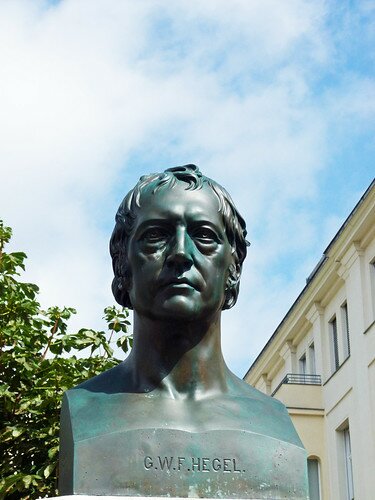Nietzsche mocked Hegel by saying that the latter thought Western civilization had reached its pinnacle in his Berlin apartment. Being forced to spend more time of late than usual in my New York apartment, I’m kind of with Hegel. My wife and I, regrettably, have no children. Our apartment is spacious enough for us. We are not only comfortable but happy in the space we have created. I am surrounded by my books, photographs, some works of art. A few months ago I bought a CD player in part to listen to a Great Courses set of CD’s on understanding classical music. Western civilization may not be at its pinnacle in my apartment but I get what Hegel felt and what Nietzsche mocked.
This idea of personal space is apparently important for people like me. This psychological insight was provided to me in my early twenties, when my father died. He was a public health doctor and had been working in Pakistan at the time. My two sisters and I had grown up around the world as he pursued his career: two years in India (before I was born), four years in Tanzania, five years in Nepal, seven years in Switzerland and France. When we went to the funeral in Islamabad we were invited to tea by the wife of the ambassador. The ambassador’s wife noted the similarity of our upbringing and that of her sons. This was in 1992. She said there was an emerging field of psychology that dealt with what were being called “global nomads” or “third culture kids”. Characteristics that we had in common were a difficulty in settling into careers, a tendency to marry people from other countries, and the importance of curating personal space. When my father died I had a low-level administrative job in DC and no clear idea of what to do with my life. I had fallen in love at first sight with a woman who lived in Mexico. I was furiously writing furious novels in the hope of becoming famous quickly. There was no time then for curating personal space.
Now I have an established career. I married the Mexican woman I had fallen in love with. Thanks to Liberty Island I have published a novel. I am comforted by my books on their shelves, many bought in second hand book stores in DC when I was trying to become a writer. It is still a thrill to reread them and to rediscover the thrill of discovering literature. What else to do but shake a martini, put on Purcell, and crack open Axel’s Castle again. At seven p.m. the pans start beating in the neighborhood reminding me of the pandemic and that I am full of dread for the fate of our civilization.
Nietzsche could not have foreseen the destruction his thinking would help unleash. He was perhaps overly confident in the solidity of Western civilization that he could mock Hegel for preserving it in his Berlin apartment. We know that cultures have disappeared: the Mayas, the Incas, Angkor Wat, Atlantis. The stupendous achievement of Western culture seemed impregnable because it lasted so long and was developed so deliberately. It is anchored in a mode of critical thinking devised by Aristotle and brought to the Latin West through translatios from Arabic (itself a fascinating story). This thinking, as Johannes Fried put it in his magisterial The Middle Ages, is bounded by “learnable rules and therefore susceptible to scrutiny and correction, and obeyed the principle of causality”. But all of this is far more fragile than it seems. Western logic is dying from the inside, dying of neglect, dying from historical amnesia. This is cultural suicide. We wonder how it is that great civilizations seemingly disappeared without a trace. This is how it happens.
I wrote the above during lockdown, before the protests and riots began. The current unrest, and the political and intellectual insanity that has accompanied it, only reinforces the point.
We have the tools to solve the very real problems that underly our restive times. They are to be found in the long history, which includes its false turns and dead ends, that has the clues to civilization. We refuse, however, to use these tools. There must be a German word somewhere for this phenomenon of seeing history repeat itself while being helpless to stop it—something along the line of “lemming watchers”. As Milan Kundera noted: “reality is utterly unashamed to repeat itself, but confronted with reality’s repetition, thought always ends by falling silent.”
This is the first of what will be weekly musings in which I decline to accept the monumental stupidity of the twenty-first century and try to salvage some gems of our civilization. So little of real beauty is produced today but we can still get by on what we have inherited until the grotesque passions of our age burn themselves out and we can plant again.
****
Photo by dierk schaefer 



Comments
Leave a Reply